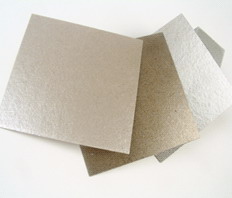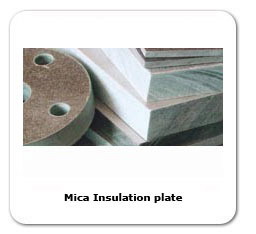LISKUN – Mikanit – Mica ploče
Hemijski sastav liskuna svrstava ga u grupu aluminijum silikata.
Svojstva:
- Termička – Liskun može da izdrži temperaturu veću od 1000°C/1830°F (flogopit), on je otporan na vatru, nezapaljiv, ne ispušta isparenja i provodi veoma malo toplote, posebno okomito na svoje slojeve.
- Električna – Prirodni liskun ima dielektričnu čvrstoću veću od 25kV/mm (625V/mil), ima dobru otpornost na luk i električnu eroziju i propustljiv je za mikrotalasne pećnice.
- Hemijska: Liskun je tolerantan na vodu i većinu hemijskih agenasa, kao što su rastvarači, kiseline, baze i mineralna ulja.
- Mehanička: ima dobru čvrstoću na pritisak. Dobro se ponaša u prisustvu naprezanja zatezanja i savijanja. Ima visok modul elastičnosti.
Glavne tehničke karakteristike
| Characteristics
Termogasket – MICA |
Test Method | MICA HEATER PLATE | |||
| Muscovite | Phlogopite | ||||
| Mica Content | IEC 371-2 | > 90 % | |||
| Silicone Content | IEC 371-2 | < 10 % | |||
| Thickness Tolerance, mm | Average | IEC 371-2 | +/- 5% | ||
| Individual | +/-6% | ||||
| Standard Size (mm) | IEC 371-2 | 1000 x 1000, 1000 x 1200, 1000 x 2400 |
|||
| Density (gm/cm3) | IEC 371-2 | 2,0~2.20 | 2,0~2.20 | ||
| Flexural strength (N/mm2) | ISO 178 | ≥200 | ≥210 | ||
| Dielectric strength (KV/mm) at 23°C | IEC 243 | >20 | >25 | ||
| Insulation resistance (M-ohm) at 23°C | IEC 93 | 200 ~ 600 | 100 ~ 600 | ||
| Resistance to temperature | continuous | 1000ºC | 1100ºC | ||
| Peak | 1100ºC | 1200ºC | |||
| Weight Loss @ 550°C for 4 Hrs | IEC371-2 | <1% | |||
| Water Absorption after 24 hrs | ISO 62 | <0,5% | |||
Mica Paper Tube
Product Description
Mica paper tube is a hard pipe insulating material prepared by using mica paper with silicon binder
Application
electric motor, electric appliances and resistors.
Available:
with wrapped on SS threaded rods
MAIN TECHNICAL CHARACTERSTICS
| Characteristics
Termogasket – MICA |
Muscovite Mica |
Phlogopite Mica |
|
| Binder | Silicone | ||
| Thickness Tolerance | OD | +/- 0.20 mm | |
| ID | +/- 0.10 mm | ||
| Standard Length | 1 Meter | ||
| Density (gm/cm3) | 1.8 | ||
| Wall Thickness | Min. 0.5 mm Max. 13 mm |
||
| Electric Strength | Parallel to laminate (In oil at 90°C) 22 KV/mm Min. 26 KV/mm Avg. |
||
| Electric strength | Normal to laminate (In oil at 90°C) 10 MV/m Min. 12 KV/m Avg. |
||
| Insulation resistance | After 24 hours in water 1 mega-ohm Min. | ||
| Temperature classification | 500°C ~ 550°C | 650°C ~ 700°C | |
| Water Absorption | 1.6 mg/cm2 Avg 2.0 mg/cm2 Max |
||


